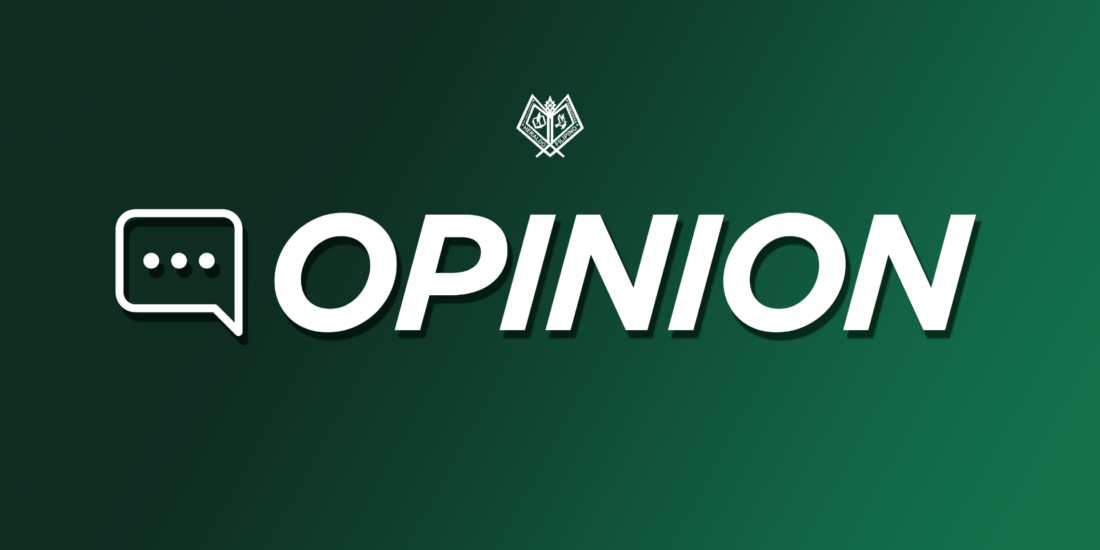Behind the honor
During my first two years as a student journalist, I never really got to avoid the subtle judgmental looks of students, professors, and even administrators upon seeing that my lanyard carries not just my student ID—but also my Press ID. Unsurprisingly, an object as simple as a Press ID can easily become a tool of stigma in this generation where almost everything is interpreted into something. And in that world of stigma, it is not only mental health that gets stigmatized—journalism also falls under the same bracket. Truth be told, no one can stop the flow of stigma that runs in our society, but the least we can do is stop it from spreading.
In the industry of journalism, journalists—as well as student journalists—have been under fire after recent events have undermined the honor behind the profession. Just look at how our president bashes news organizations every chance he can get. Media has undergone waves of criticism that people’s trust in it is wavering (thanks for that, Mocha Uson), leading to an impulsive reaction against any news report that contradicts what they want to believe in. It has been that way for a long time, but it never really bothered us that much to want to actually stand against the crowd and break this toxic cycle. But perhaps it’s time to start.
As the official student publication of DLSU-D, HERALDO FILIPINO (HF) is quite familiar with instances like this. After all, our job is to tell stories that students need to hear, regardless if they want to be told in the first place. Our job is to inform—not to be liked. Critics, haters, and outright trolls are to be expected, but it’s never stopped us in fulfilling our responsibilities. Because at the end of the day, we’re just doing what needs to be done—something that every journalist and media practitioner knows and understands.
A single step forward is better than taking no steps at all.
However, not everyone else does. See, this profession isn’t meant for the thin-skinned or soft-hearted. Criticism is part of everyday life, and facing trolls is a daily battle. Most have now become immune to the insults “bias,” “dilawan,” and “bayaran.” Regardless, we carry on through the torrential onslaught of insults to do our job—to uphold the truth—because if we don’t, who else will? If journalism will teach you anything, it’s this: sometimes you need to hear what you don’t want to know, because while ignorance is bliss, it’s also cancer.
There’s no hiding that there are some crooked journalists out there, but it shouldn’t stop you from trying to be a decent one. It’s both a burden and a responsibility that we student journalists have to carry for a long time—to be responsible and ethical even in the face of those who would see you fail.
Honestly, it’s tiring to spend sleepless nights producing broadsheets for the students who may or may not want to read it in the first place. However, crazy as it may sound to some, this only serves as a burning match stick that makes the fire in HF rise even more to fight for the truth, as it has been doing for the past 32 years. Because at the end of the day, it will always be service to the community that will matter above all else—above the stigma, the criticism, and the distrust. As our Editor in Chief constantly reminds us, “Be good and do good. Always.” No matter the odds.
And so, as you have managed to reach the end of my column, I hoped that you realized something and learned a thing or two. And maybe, just maybe, after you finished reading the last paragraph, you’ll find yourself putting down this broadsheet, pausing for a while, and thinking deeply about the importance of the media’s relationship with society.
Everyone has their own purpose to fulfill, and so do we. You don’t need to be insanely smart to know that, and unless we want a significant change to happen, let us begin with challenging ourselves to see and understand how we all play a role in this world, just as the media and journalism have their own important purpose, whether people like it or not. It may take a while before the stigma is washed away, but a single step forward is better than taking no steps at all.




